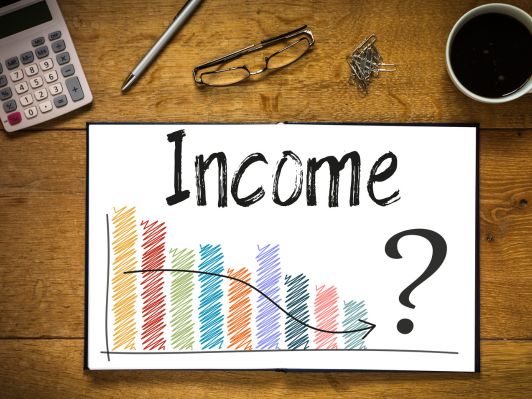Have been refused for a loan everywhere in the UK? This is a frustrating situation. One many people in the UK face. Especially when you need to borrow money urgently.
Don’t lose hope as there are still plenty of options available to you. Despite being refused for a loan, you can and take steps to find the right loan for your needs.
In this article, we’ll discuss the reasons why you might have been refused a loan. What your options are. And how to increase your chances of being approved for a loan in the future.
Table of Contents
Why have you been refused a loan?
There are several reasons why a lender might refuse to grant you a loan. Some of the most common ones include:
1. Poor credit score

Your credit score is a very important factor that lenders use. They use it to decide if you can be approved for a loan. Your credit score shows your creditworthiness. This is based on your past borrowing and repayment history.
A poor credit score shows that you may be a high-risk borrower. Lenders may not approve your credit application in such cases.
2. Low monthly income

Low monthly income is one more common reason why credit applications are rejected in the UK. Lenders want to be confident that borrowers will be able to repay their loan on time. A low monthly income can indicate that a borrower may struggle to make timely repayments.
Most lenders in the UK are required to run affordability checks. These ensure that borrowers can afford to repay the loan. This involves assessing the borrower’s monthly or annual income. Along with their expenses. They then determine whether they will be able to make the repayments without experiencing financial hardship.
3. Employment status

Employment status is another important factor that lenders consider when assessing your loan application. Lenders always want to make sure that borrowers have a stable source of income. This is so they can repay the loan on time.
This is the main reason why lenders prefer lending to people who are in a stable job. With a regular monthly income. Instead of those who have their own business or are self employed.
4. Lack of collateral
There might be lenders who require borrowers to provide collateral. This could be a home. Or a car. As security against a loan. These loan providers are known as secured loan providers. This gives the lenders an assurance that they will be able to recoup their losses if the borrower defaults on the loan.
Not everyone may have a collateral to offer. This can make it more difficult for the lender to secure a loan. In such cases, lenders may be more cautious when approving their loan application.
5. Too many existing loans or debts in your credit file
Having too many existing loans or debts can be another reason why your loan is rejected. Lenders typically looks for borrowers who are able to manage their debt responsibly. Such as those who have a history of making timely payments.
If a borrower already has a lot of debt. Like a loan or credit card bills. Then it may indicate that they are already struggling financially. Or that they may not be able to take on additional loan payments.
Applying for too many loans or debts can affect your credit rating negatively. This is because it will show up on your credit report as multiple hard inquiries.
6. Too much recent credit activity
One of the key factors that lenders consider when assessing your application is the credit history of the applicant. A credit file shows the lender how an applicant has handled a credit in the past. It includes any missed payments, defaults or County Court Judgements (CCJs).
Another factor that is often considered is the frequency of loans or other credits. This can include opening new accounts, making multiple loan applications, etc.
If an applicant has a lot of recent credit activity, it can be a red flag for lenders. This can make them hesitant in approving a new loan.
Types of Loans Available
If you have been refused a loan from traditional lenders such as banks and credit unions, don’t fret. There are many other options available to you. Below are some of the loans you might get approved from direct lenders in the UK:.
1. Payday loans
Payday loans are a type of short term loans which are typically due on your next payday. These loans are designed to provide you with quick access to cash when you need it most, and they are available to people with even with bad credit.
This is why people who are often rejected by lenders for traditional loans, often take payday loans as they are very easy to obtain. But it’s important to keep in mind that payday loans can be very expensive.
They often come with high interest charges and fees, which can make them difficult to be repaid on time if not handled carefully.
2. No guarantor loans
If you have been refused a loan because you have no one to act as a guarantor, a no guarantor loan could be an option for you. These loans do not require a third party to co-sign your loan agreement, making them a more accessible option for many people.
One advantage of no guarantor loans is that they can be faster to obtain than traditional loans, as there is no need for a guarantor to be approved or for their credit history to be checked. However, interest rates on these loans can be higher than traditional loans as the lender may see you as a high risk borrower without a guarantor.
3. Bad credit loans
If you have been refused a loan due to low credit rating, you may still have options to consider. Bad credit loans are designed specifically for people with poor credit scores. These loans typically come with higher interest rates than other loans, but they can provide a lifeline when you need cash urgently.
Before taking out a bad credit loan, it is important to shop around and compare different lenders to find the best deal and go for the one that fits your needs.
4. Personal loans
A personal loan can be a good option for those who have been refused a loan due to their poor credit score or low monthly income. These loans are typically unsecured and can be used for variety of purposes, like debt consolidation, home improvements or any other financial situation.
However, people with poor credit may face higher interest rate and strict repayment terms. It is also important to compare offers from different lenders and only borrow what you can afford to repay on time.
5. Unsecured loans
Unsecured loans are a type of loans that does not require you to put down any collateral. These loans can be a good option for those who have been refused a loan because they lack collateral. However, since they are unsecured, they generally have higher interest rates than secured loans.
Steps to improve your chances of loan approval
If you have been refused a loan, then no need to worry as there are steps you can take to improve your chances of getting approved for loans in the future. Below are some of these steps:
1. Improve your credit score

If you’ve been refused a loan in the UK because of your bad credit rating then improving it can increase your chances of approval in future.
To do this, start by reviewing your credit report for errors and addressing any outstanding debts. Consider paying bills on time, reducing credit card balances, and avoiding applying for too many loans at once. It’s also worth getting your name in the electoral roll to vote.
All these can affect your credit score positively and help you in getting a good credit score which may improve your chances of loan approval in the future.
2. Increase your income
Increasing your income can be an effective way to improve your chances of getting approved for a loan. Lenders usually have income requirements that borrowers must meet in order to qualify for a loan. If your income falls below the required threshold then you may be rejected for a loan.
3. Find a co-signer
A guarantor or co-signer is someone who agrees to repay your loan if you are unable to do so. They are essentially providing security to the lender, making it easy for the lender to lend you.
When looking for a guarantor, it’s important to choose someone who has a good credit rating, is financially stable and who trusts you enough to co-sign your loan.
4. Consider alternative lenders
Alternative lenders offer loans to individuals who may not meet the strict criteria of traditional lenders. These lenders may be more flexible with their requirements, and may be willing to consider factors such as your income and employment status, rather than just your credit score.
There are several types of other lenders in the UK, including online direct lenders, peer-to-peer lenders, and credit unions.
It’s also important to note that these alternative lenders may have higher interest rates than traditional lenders, so it’s important to shop around and compare different lenders before making a decision.
Final words
In conclusion, being refused for a loan can be discouraging, but there are alternative options to explore. It’s important to understand why your loan application form was rejected and take necessary steps to improve your creditworthiness.
Exploring alternative lenders, co-signers, and improving your credit score are all steps to take towards successful loan approval in the future.
FAQs
What is the best way to improve my credit score?
The best way to improve your credit score is by paying your bills on time, reducing your debt, and doing a credit check in regular interval of time to look for errors in your credit report.
What if I have errors in my credit report?
If you have errors in your credit report, it is important to contact a credit reference agency (CRA) as soon as possible. Credit reference agencies are responsible for compiling financial information from lending institutions and providing this information to lenders so they can make informed decisions about an individual’s ability to repay a loan.
Does having a high credit score improves my chances of getting approved for a loan?
Having a high credit score can significantly increase your chances of borrowing money from a lender. A higher credit score is an indication of good financial responsibility and is often a major factor when it comes to lenders considering you for a loan approval.
Disclaimer: The information given above is provided for reference only. This is not financial advice.

